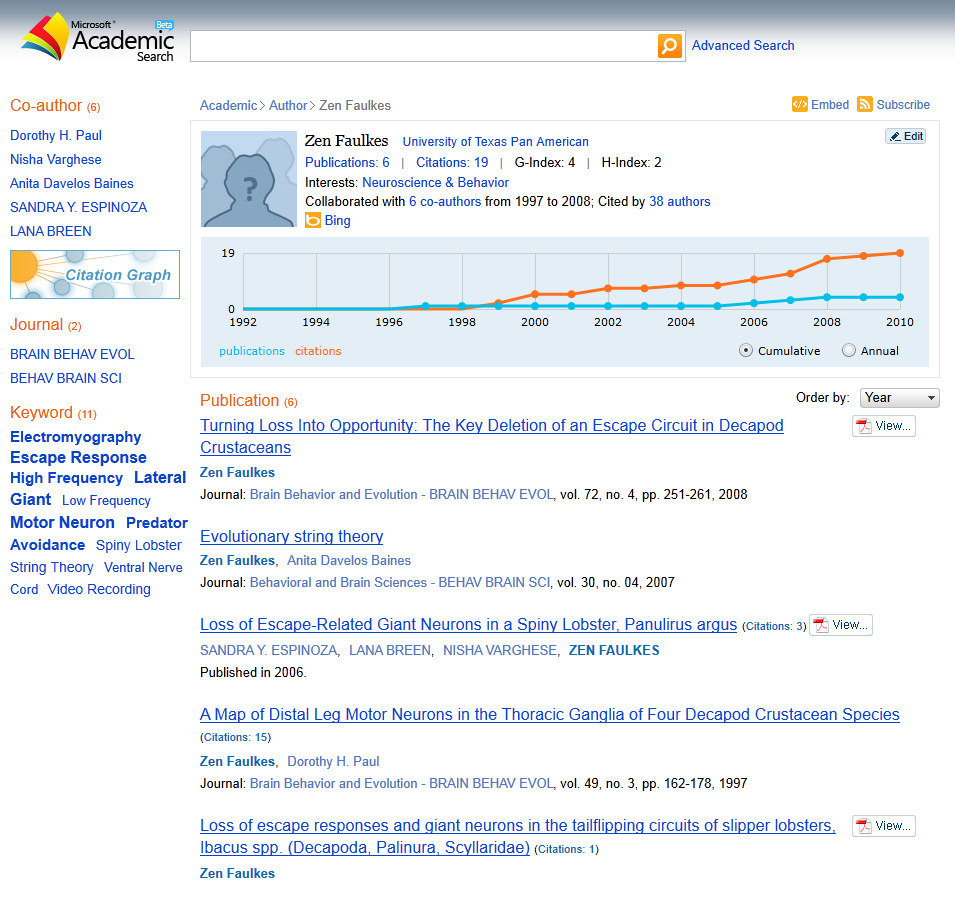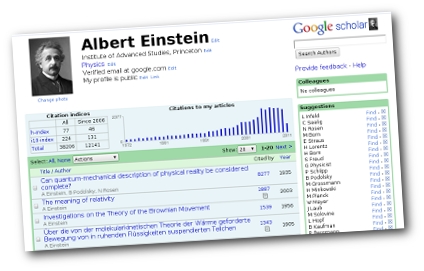Apr 04, 2012
Microsoft Academic Search: nice Science 2.0 service, wrong H-index calculation!
Yesterday I came across Microsoft Academic Search, supposingly the main contender of Google Scholar Citations.

Although the service provides a plenty of interesting and useful features (including customizable author profile pages, a visual explorer, open API and many others), I don't like AT ALL the fact that it publishes an author's profile, including publication's profile and list, without asking the permission to do that (as Google Scholar does).

But what is even worse, is that the data published are, in most cases, incomplete or incorrect (or at least, they seemed incorrect for most of the authors that I included in my search). And this is not limited to the list of the list of publications (which could be understandable) but it also affects the calculation of the H-index (which measures both the productivity and impact of a scholar, based on the set of the author's most cited papers and the number of citations that they have received in other publications).
Since in the last few years the H-index has become critical to measure researcher's importance, displaying an inaccurate value of this index on a author's profile is NOT appropriate. While Microsoft may object that its service is open for users to edit the content (actually, the Help Center informs that "If you find any wrong or out-of-date information about author profile, publication profile or author publication list, you can make corrections or updates directly online") my point is that you CANNOT FORCE someone to correct otherwise potentially wrong data concerning scientific productivity.
One could even suspect that Microsoft purposefully underestimates the H-index to encourage users to join the service in order to edit their data. I do not think that this is the case, but at the same time, I cannot exclude this possibility.
Anyway, these are my two cents and I welcome your comments.
p.s. Interested in other Science 2.0 topics? Join us on Linkedin
11:30 Posted in Research tools, Social Media | Permalink | Comments (0)







The comments are closed.